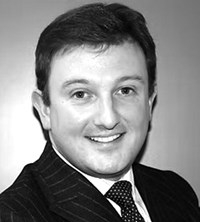How I Do It archive for 2021
Sialendoscopy
Recent advances in endoscopic technology allow the ENT surgeon to access the salivary gland ductal system for both diagnostic and therapeutic reasons. In this article the authors share their experiences with using this technology, both as a standalone procedure and...
Random-pattern skin flaps: part 1 – advancement flaps
In the first of a short series covering random pattern skin flaps and their use in clinical practice (see Part 2 here, Part 3 here and Part 4 here), Christopher Thompson and Miles Bannister describe in some detail their techniques...
Finding the right balance: remote dizzy patient consultation during a pandemic
During the COVID pandemic, all our working patterns have changed. One significant impact had been on the management of outpatient consultations and the increase in telephone consultations and enhanced vetting. In this article the authors share their experience of managing...
Face shield modification in ENT during COVID-19 pandemic
The COVID pandemic has caused a huge disruption to our lives, not least at work where safety restrictions and the widespread implementation of PPE have led to some challenges to carrying out routine ENT work. In this article, the authors...
Endoscopic stapes surgery
Traditionally middle ear surgery, including stapes surgery, has been performed using the operating microscope. In this article the authors describe their experience with endoscopic middle surgery and share some of its advantages. Trans-canal endoscopic ear surgery (TEES) is now a...
Retrieval of an aspirated voice prosthesis in the awake laryngectomised patient
In this article, the authors describe a simple and effective technique for extracting an aspirated voice prosthesis from within the tracheobronchial tree in the awake laryngectomised patient using the Ambu® aScopeTM 4 Broncho endoscope. Surgical voice restoration remains the dominant...
Triple semicircular canal occlusion and Meniere’s disease: a rising alternative treatment?
Patients with dizziness form a large part of the workload for ENT surgeons. In the overwhelming majority of cases, management will be medical and successful. However, occasionally some patients present a challenge when they have not responded to conventional treatments....












